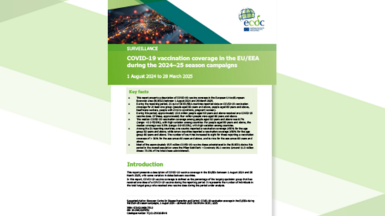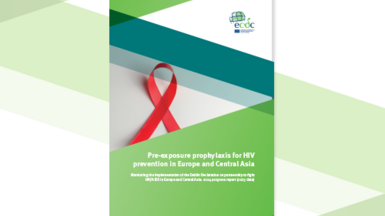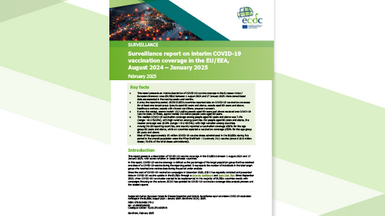A rapid evidence review of interventions for improving health literacy
The promotion of health literacy is critical for active and informed participation in health and healthcare, and is identified as a key action to reduce health inequalities.
This report presents the outcomes of a rapid review of the evidence on the effectiveness of interventions to improve health literacy, with a specific focus on communicable diseases and interventions for disadvantaged populations within the European context. The review identifies gaps in the research evidence concerning which interventions are most effective in improving health literacy, particularly with regard to communicable diseases and studies conducted in Europe. It highlights that further research is needed on the impact of health literacy interventions in the public health field, paying particular attention to evaluating communication about communicable diseases, and determining the most effective strategies for meeting the needs of population groups with low literacy levels, and those who are vulnerable, disadvantaged and hard to reach.
Executive Summary
ECDC has published a paper providing rapid review of the evidence on the effectiveness of interventions to improve health literacy. It focuses on communicable diseases and interventions for disadvantaged populations within the European region. The review identifies and synthesises five evidence reviews, published between 2000 and 2010 on effective strategies for improving health literacy.
The promotion of health literacy is critical to active and informed participation in healthcare issues and is identified as a key action to reduce health inequalities within the European Union. ECDC has published a paper providing rapid review of the evidence on the effectiveness of interventions to improve health literacy. It focuses on communicable diseases and interventions for disadvantaged populations within the European region. The review identifies and synthesises five evidence reviews, published between 2000 and 2010 on effective strategies for improving health literacy.
It was found that most interventions identified focus on the functional level of health literacy and work at the traditional health education level, with little evidence of interventions targeted at the interactive or critical levels of health literacy. The review also highlighted the lack of research concerning disadvantaged and hard-to-reach populations.
The report concludes that further research is needed on the impact of health literacy interventions in the public health field, in particular evaluating communication about communicable diseases, and determining the most effective strategies for meeting the needs of population groups with low literacy levels, and those who are disadvantaged and hard-to-reach.
Download








